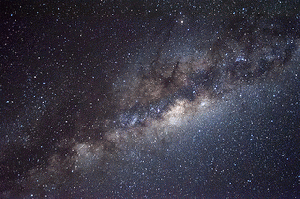| Back OpEd News | |||||||
|
Original Content at https://www.opednews.com/articles/Having-Faith-in-an-Enchant-by-Robert-De-Filippis-130717-565.html (Note: You can view every article as one long page if you sign up as an Advocate Member, or higher). |
|||||||
July 17, 2013
Having Faith in an Enchanted Universe
By Robert De Filippis
Is religion as guilty as science for disenchanting the universe. Does faith in the unknown require the universe to be re-enchanted? Or does the long arc of evolution deserve our faith unaided by human stories and explanations?
::::::::
(Article changed on July 17, 2013 at 13:06)
de dentro by Lucas Jampietro
After my recent essay, Faith: An Antidote to a Form of Neurotic Christianity?, a reader began his response with this quote regarding faith from Anthony DeMello, ""You cannot fear something that you do not know. Nobody is afraid of the unknown..."
He then went on to write: "As for faith, I'd like to have the faith of a mustard seed, but find it incredibly hard to do. How can you possibly claim to be intellectually honest, and at the same time have "faith" in what you honestly don't know?"
I responded, "I think that's the challenge of a lifetime and can only be achieved through refusing to accept any static belief system, all created by human beings built on theory-dependent models of reality: Human theories!
The universe is a mystical place. Not necessarily home to an intelligent super agent, but to forces and logic that we are only on the threshold of understanding. That is the unknown that grounds my faith. I have faith in an enchanted universe."
My response begs the question, "what is an enchanted universe?"
The answer is best reflected in this abstract titled, "Re-enchanting a Disenchanted Universe - Post Modern Projects in Theologies of Space" by Anthony O. Balcomb, found at ingentaconnect.com.
"Disenchantment' was an expression coined by Max Weber to describe a process whereby the world was rid of all spiritual reality and subjected to the power of the calculating and rational human mind. An enchanted universe was one in which space was presenced with spiritual agency, where things were subjects, not objects, and in which an epistemology of engagement, not disengagement, operated.
Disenchantment involved, amongst other things, the emptying of space, the objectification of being, and the linearizing of time. Christian theology from the seventeenth century became associated with a disenchanted, modernizing agenda through early Christian scientists such as Bacon, Newton, and Descartes.
While modernity has brought unprecedented levels of supremacy over nature the association of Christian theology with the modern agenda of disenchantment has been questioned in the postmodern context.
Theologies of place and space are now being sought that take seriously an agenda that places God and spirituality back in the world and not beyond the world, that emphasizes an organic and not a mechanistic universe, and that resuscitates the notion of agency in the world."
To be clear, in this agenda that places God and spirituality back into the re-enchanted universe that merits my faith, "God" is a metaphorical term and not an anthropomorphic figure who plays Santa Claus to Earthlings.
There remains something mystical beyond the reach of human theory- dependent models of explanation, whether they be scientific or religious. Mysteries in a monistic reality, and to borrow from Laplace, "there is no need of the hypothesis" of a dualistic universe cleaved by the supernatural.
So there remains the question of agency in an monistic organic universe; one described by physical laws that seem to peel back layer after layer of new questions and the need for more inquiry. Yet in a universe of increasing entropy, complex systems continue to evolve in a direction that no human can predict with certainty.
To paraphrase Stuart Kaufman, a theoretical biologist and complex systems researcher, "with no entailing law, uncertainty about initial conditions, and our inability to indentify boundary conditions with absolute certainty, life bubbles forth."
And so, with all this uncertainty, life has bubbled forth to become us, with a incomprehensively complex brain and the conscious ability to contemplate our own existence.
My suspicion we live in a teleological universe is probably the residual of my Roman Catholic education. But even though I can't prove the universe has a goal, my faith is grounded in the direction I see underlying the historical chaos that brought us to now .
There is a universal wisdom in Dr. Martin Luther King's comment, "the arc of history is long but it bends toward justice." I have faith that Dr. King's arc reflects a grand universal arc that has taken us from cavemen staring at the moon in wonderment to astronauts walking on that same object.
My faith in the unknowable is grounded in that grand universal arc. All 13.7 billion years of it.
Robert De Filippis
Authors Website: http://www.robertdefilippis.com
Authors Bio:
Author, columnist, and blogger with a long career in business management, management consulting and executive coaching. I've authored and published eight books: "You, Your Self and the 21st Century,"The Flowers Are Talking to Me," and "Faith Stirred Not Shaken," Christianity in America, "The Martian Prelude," Faith Stirred not Shaken, 2nd edition," "On Coaching with The Birkman Method." "On Coaching with The Birkman Method," and coming soon is my new book, "Loosing" Your Mind: Liberating Your Intellect for Critical Thinking." For sale at your favorite booksellers or the publisher's site: booklocker.com
